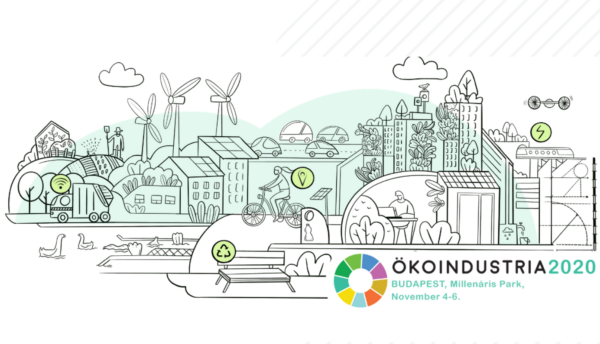Circular economy opportunities in Hungary
The transition to a circular economy will be a main pillar of Hungary’s Recovery and Resilience Plan with an estimated net budget of EUR 590 million available for two priority areas. EUR 343 million will be devoted to the improvement of the waste management infrastructure, including collection, transportation and sorting capacities. The other area will focus on the development of a smart, innovative and sustainable industry, and the strengthening of the secondary raw material market with an investment of EUR 247 million.
Thinking about doing business in Hungary? Below you will find information on policy landscape, circular economy strategy, and selected priority areas!
Facts & Figures
Economic indicators
- Population (2021): 9,639 mln
- Nominal GDP (2019): €13,630 mln, world rank:51th
- Purchasing power (2018): €28,921
- Export from the NL (2020): €4.52 billion
- Economic growth (2019): 4.6%
- Ease of doing business rank (2020): 52/190
- Corruption index (2019): 44/100
- Unemployment rate (2020): 4.6%
- Currency (+exchange rate euro): Hungarian Forint (EUR1=HUF 357.13)
- Time difference NL: +0.00 hrs
Circular economy indicators
- Global innovation index: 35/131
- Municipal waste recycling rate: 35.9%
- Circular material use rate: 6.8%
Policy landscape
Environmental policy goals
Hungary’s environmental policies follow the EU’s roadmaps and recommendations. The main driver of these policies is to investigate the root causes of climate change and tackle those issues. The country’s Second National Climate Change Strategy sets out four strategic goals:
- Decarbonization (increase resource efficiency)
- Analysis of vulnerability to climate change
- Adaptation and preparation
- Partnership development to tackle climate change
In line with the Strategy, Hungary’s National Climate Action Plan aims to achieve a reduction of GHG emission by at least 40% and a minimum 21% share of renewables in final energy consumption by 2030.
The Hungarian waste act
In 2020, the government announced the transformation of the Hungarian waste management into a state-controlled system. It means that local municipalities will not be responsible for local waste management issues anymore. A long-term concession will be given for waste collection services (including trading) and the operation of landfills. The waste utilization services will remain market-based but the concessionaire will have a supervisory role over the entire system. The concessionaire will be the link between waste producers and waste utilizers. It will manage municipal waste and all kinds of waste which has an environmental product fee. A new body, the Circular Economy Nonprofit Ltd. will be established to supervise the regional waste management systems.
Green national champions programme
The government initiated the Green National Champions qualification program to improve Hungary’s results in the field of environmental performance and sustainability. The aim of the program is to support the development of micro, small and medium-sized manufacturing enterprises with high growth potential related to the green economy and industry, which facilitate technology change. Eligible companies receive financial support to develop and upgrade circular economy solutions. Repayable grant of between 55.000 EUR and 1.100.000 EUR awarded to the projects that meet the conditions.
Circular transition through economic recovery
The transition to a circular economy will be a main pillar of Hungary’s Recovery and Resilience Plan with an estimated net budget of EUR 590 million available for two priority areas. EUR 343 million will be devoted to the improvement of the waste management infrastructure, including collection, transportation and sorting capacities. The other area will focus on the development of a smart, innovative and sustainable industry, and the strengthening of the secondary raw material market with an investment of EUR 247 million. The improvement of chemical recycling will be a major theme under this area. The Hungarian government is preparing a Circular Economy Strategy to develop a comprehensive framework for the country’s circular transition. The document will be published in 2022.
We see four priority areas when it comes to circular economy opportunities: the Automative battery market, Buildings & Infrastructure, Waste management & Recycling, and Bio-waste Utilization
Dutch Embassy in HungaryAutomotive battery market
The automotive industry is the backbone of the Hungarian economy and the current trends show that the country will play a key role in the emerging EU (and global) battery market. Within the CEE region, preparations for the production of EVs are progressing at the fastest pace in Hungary. Significant electric powertrain-focused developments have been announced by foreign companies that are preparing to invest over EUR 4 billion in the coming years. Due to the current trends of e-mobility uptake and the EU’s strengthening battery collection regulations, the battery industry has significant potential for recycling and reuse. In Hungary, only a few players have competencies for battery component recycling, and several companies export their battery waste for recycling. The same lack of competences apply to services for EV battery reuse. That creates significant opportunities for new businesses, OEMs, utilities and specialized start-ups.
Buildings & Infrastructure
The construction industry is a major contributor to the economic growth of Hungary. It showed a continuous increase in the previous years and is expected to grow further. A high percentage of the Hungarian residential buildings are in poor condition and more than one third of the population (1.42 million homes) plans renovation within the next five years. The demand for sustainable building practices is rising but it is still surpassed by the booming of the sector. Constructions are responsible for one third of the total amount of waste generation in Hungary which makes it the most waste intensive industry of the economy. Despite the country’s high recovery rate in construction waste, most of the reused materials end up in backfilling. There is room for improvement to develop new recycling technologies to produce construction materials with higher sales value.
Waste management & Recycling
Hungary’s interpretation of the circular economy is very much focused on waste management and recycling. The relevant performance indicators of the country are lagging behind the EU average that creates an upward potential in utilizing secondary raw materials. The ban on single-use and other plastic products opens possibilities for circular packaging. The Hungarian Association of Mineral Water, Juice and Soft Drinks set a goal to have 30% recycled content in PET bottles until 2025 and 50% until 2030. Although, there are PET recycling companies on the market, only few of them are able to produce suitable quality for the food industry. New capacities are expected to be built in the following one to three years to satisfy the demand of the market. The upcoming centralization of the waste management market also creates room for a more focused cooperation on technology transfer.
Bio-waste utilization
From a production point of view, agriculture is one of the most significant sectors of the Hungarian economy. The amount of organic waste generation is significant and the agriculture-based biogas power generation capacity has shown steady growth since Hungary part of the EU. Yet, the utilization rate for energy production is quite low compared to the Netherlands. The local market offers opportunity to exploit the potential of biogas production’s broader value chain (e.g. “green” energy production, organic manure production and feedstock or bioplastics). There is also room for the non-energy utilization of bio-waste by producing substitutes to single-use plastic products or biodegradable packaging for the FMCG sector.
Relevant networks
CE and sustainability think tanks/research institutes
- Hungarian Circular Economy Platform
- Hungarian Lean & Green Platform
- Hungary Green Building Council
- Hungarian Association of Environmental Enterprises
- Hungarian Waste Management Federation
- Bay Zoltán Applied Research – Circular Economy Initiative
- IFKA Public Company for Industrial Development
Business Networks
- Business Council for Sustainable Development in Hungary
- Pannon Pro Innovations
- Netherlands-Hungarian Chamber of Commerce
Useful links & Embassies
Digitale Business Day Centraal-Europa 2022
online | 1st of December 2022

Discover the many possibilities in Central Europe!
5th Hungarian Circular Economy Summit
Budapest, Hungary | 24th of November 2022

Opportunities for Dutch circular companies in Hungary
Trade Mission to Hungary and Slovakia on Circular Construction and Recycling
Budapest and Bratislava | 28th until 30th of June 2022

Discover opportunities on construction and recycling in Hungary & Slovakia!
Circular & sustainable construction Meet-up | Hungary and Slovakia
online | 9th of June 2021

Sustainable construction business to Hungary and Slovakia
Ökoindustria
Budapest, Hungary | 28th until 30th of April 2021

Waste Management, Brownfield industry, CE and Freshwater Protection
